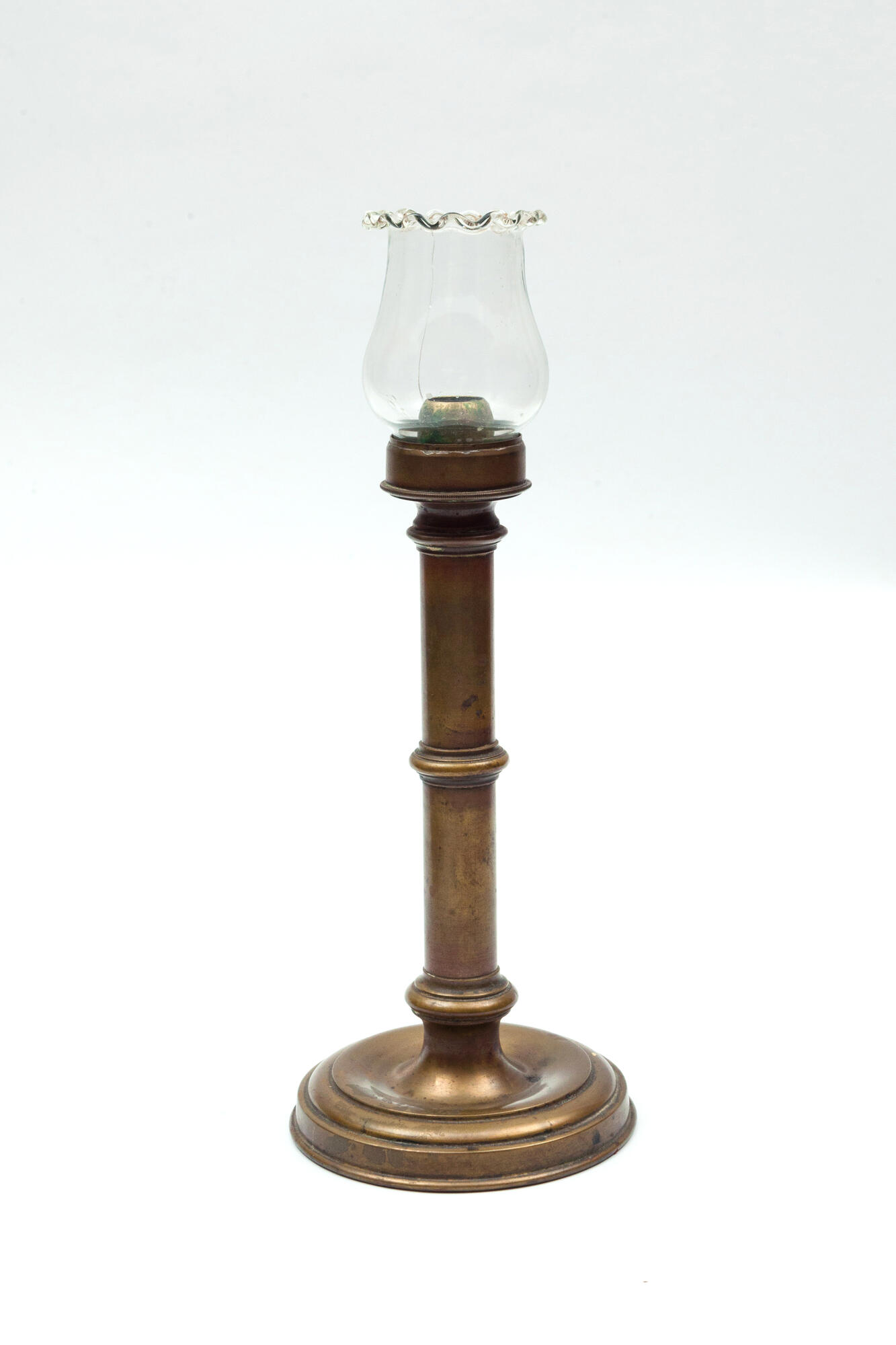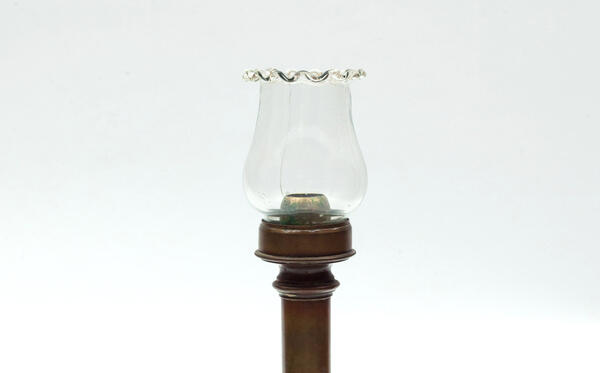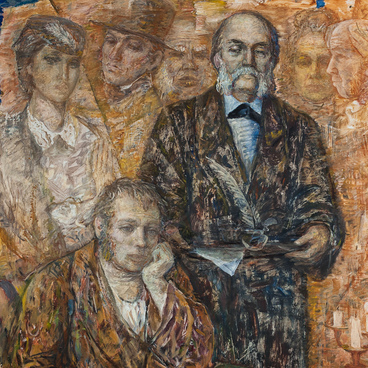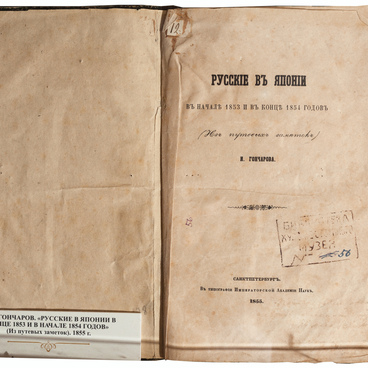The Ulyanovsk Museum of Local History named after Ivan Goncharov houses an outdoor candleholder with a brass body, a round base, and a glass tulip-shaped hurricane. It used to belong to Ivan Goncharov, and after his death, it was inherited along with his other possessions by his housekeeper Alexandra Treygut and her three children adopted by Goncharov — Alexandra, Vasily and Yelena.
Every summer starting from the late 1870s, Goncharov took Alexandra Treygut and her children to a dacha in the resort town Dubbeln in Latvia. The town is presently known as Dubulti which is the administrative center of Jūrmala. There was still no electricity in the area back then, so Goncharov and the children would often spend their evenings on the terrace lit by candlelight. Glass hurricanes were used to prevent candles from being blown out by the wind.
In the late 1880s, Ivan Goncharov’s health condition deteriorated to the point where he could no longer travel outside the Saint Petersburg region. From then on, the summer house for him and the Treyguts was always located somewhere in the vicinity — Petergof, Pavlovsk, Ust'-Narva. But, as Goncharov’s close friend Anatoly Koni reminisced, the writer “still felt drawn to the seaside.”
Despite the changes, the tradition of spending the evenings on the terrace in the candlelight carried on. Goncharov tutored the Treygut children, teaching them arithmetic, penmanship, history, and geography, as well as reading and discussing books together. He eventually helped all three of them to get an education in Saint Petersburg. The youngest, Yelena, would later become Goncharov’s secretary and write down letters and his last works at his dictation. Yelena Treygut-Lindenbaum also kept the writer’s archives.
The outdoor candleholder was donated to the Ulyanovsk Museum of Local History by Nina Rezvetsova, Alexandra Treygut’s daughter-in-law. The exhibit was accompanied by a cover letter,
Every summer starting from the late 1870s, Goncharov took Alexandra Treygut and her children to a dacha in the resort town Dubbeln in Latvia. The town is presently known as Dubulti which is the administrative center of Jūrmala. There was still no electricity in the area back then, so Goncharov and the children would often spend their evenings on the terrace lit by candlelight. Glass hurricanes were used to prevent candles from being blown out by the wind.
In the late 1880s, Ivan Goncharov’s health condition deteriorated to the point where he could no longer travel outside the Saint Petersburg region. From then on, the summer house for him and the Treyguts was always located somewhere in the vicinity — Petergof, Pavlovsk, Ust'-Narva. But, as Goncharov’s close friend Anatoly Koni reminisced, the writer “still felt drawn to the seaside.”
Despite the changes, the tradition of spending the evenings on the terrace in the candlelight carried on. Goncharov tutored the Treygut children, teaching them arithmetic, penmanship, history, and geography, as well as reading and discussing books together. He eventually helped all three of them to get an education in Saint Petersburg. The youngest, Yelena, would later become Goncharov’s secretary and write down letters and his last works at his dictation. Yelena Treygut-Lindenbaum also kept the writer’s archives.
The outdoor candleholder was donated to the Ulyanovsk Museum of Local History by Nina Rezvetsova, Alexandra Treygut’s daughter-in-law. The exhibit was accompanied by a cover letter,



